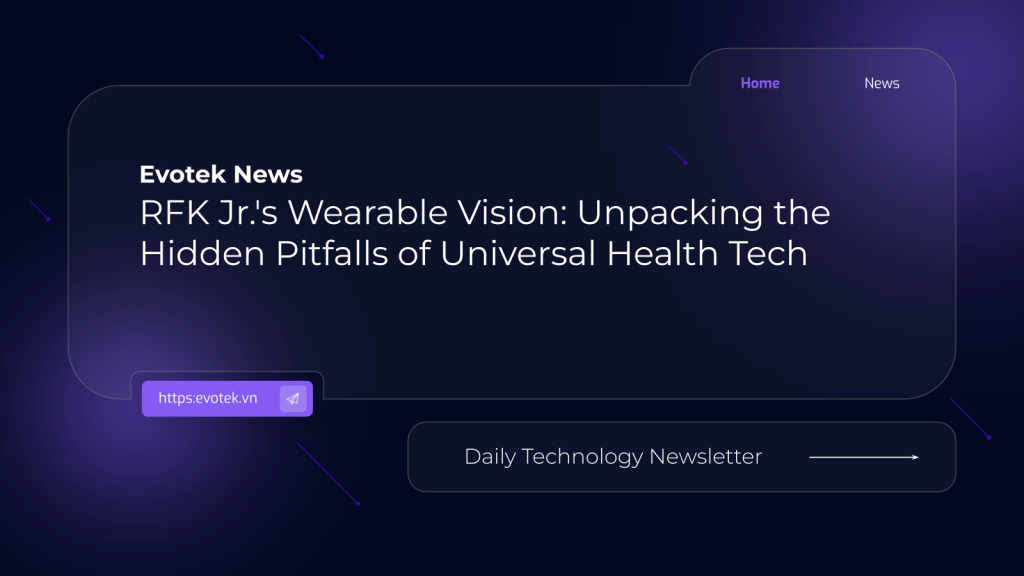Secretary RFK Jr. recently articulated a bold vision for American health: outfitting every citizen with a wearable device within the next four years. This ambitious goal aims to transform how individuals manage their well-being, but it also sparks a crucial debate about the complexities and potential downsides of universal health technology adoption.
Speaking at a congressional hearing in late June 2025, the Secretary of the Department of Health and Human Services (HHS) championed wearables as central to the “Make America Healthy Again” (MAHA) agenda. He emphasized these devices as tools to empower individuals to “take control” and “take responsibility” for their well-being by monitoring lifestyle impacts on health metrics. Kennedy even shared anecdotes of friends who had reportedly lost significant weight and reversed diabetes diagnoses thanks to devices like continuous glucose monitors (CGMs).
This initiative was further amplified by Secretary Kennedy on social media, where he stated, “Wearables put the power of health back in the hands of the American people. We’re launching one of the largest HHS campaigns in history to encourage their use—so every American can take control of their health, one data point at a time. It’s a key part of our mission to Make…”
While the concept of leveraging technology for better health seems appealing, experts caution against a simplistic interpretation. Victoria Song, a senior reporter specializing in wearables and health technology with 13 years of experience, understands the allure of these devices, yet critically examines the notion that universal adoption guarantees positive outcomes.
Song’s skepticism is rooted in personal experience. In 2014, seeking to address an unexplained 40-pound weight gain, she began using a Fitbit. What started as a quest for health quickly morphed into an unhealthy obsession. She meticulously tracked every step, pushing herself to 10,000 to 15,000 steps daily, regardless of conditions. This intense activity was paired with dangerously restrictive eating, sometimes consuming as few as 800 calories per day while engaging in exercise equivalent to 7.5 miles.
This journey, intended for health improvement, spiraled into a cycle of obsession, physical injury, and eventually, disordered eating. It illustrates a crucial counterpoint to the “take control” narrative: for some, the constant stream of personal health data can trigger detrimental behaviors rather than foster genuine well-being.
Secretary Kennedy’s ambitious plan highlights the growing role of digital health tools in public policy. However, Song’s testimony serves as a vital reminder that while wearables offer significant potential, a blanket mandate overlooks the complex psychological and behavioral impacts that can turn a tool for health into a catalyst for unhealthy fixations. The future of health technology, it appears, is far from a one-size-fits-all solution.

 日本語
日本語 한국어
한국어 Tiếng Việt
Tiếng Việt 简体中文
简体中文